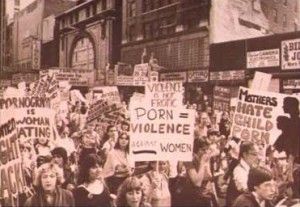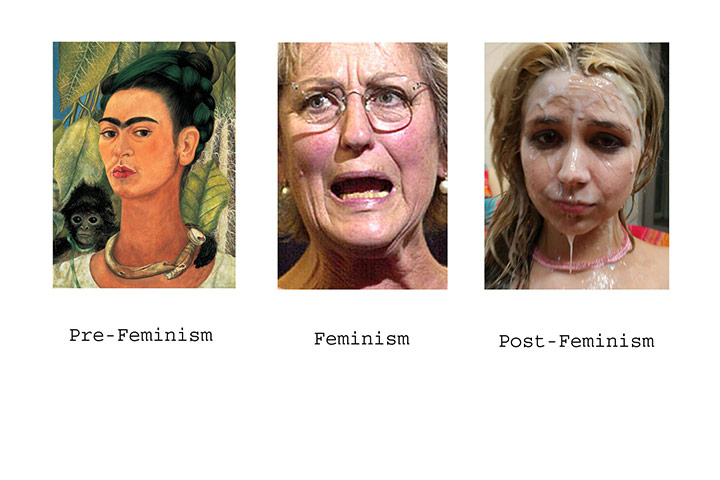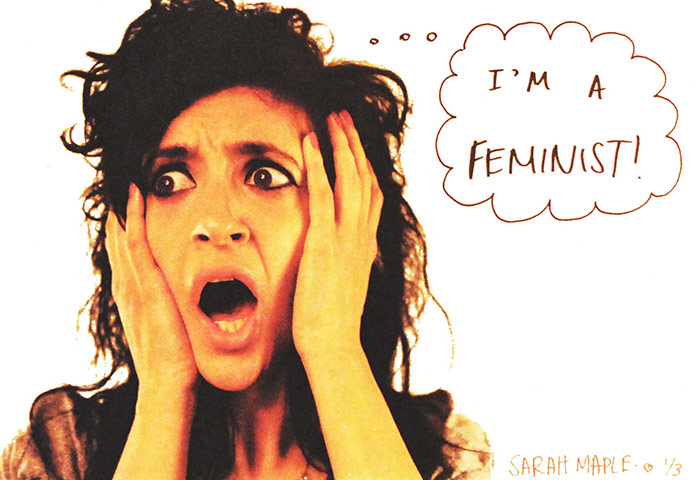Feminism, Pornography and the Fight Against Patriarchy
Posted by Stuart in Uncategorized, tags: feminism, pornography, sexuality, women's rights The following is an essay I wrote, and have recently submitted, for my Sexualities class. A bit long perhaps but the blog’s been kind of short of stuff recently and I thought it might interest some people. Have included the bibliography in case anyone wants to do some further reading.
The following is an essay I wrote, and have recently submitted, for my Sexualities class. A bit long perhaps but the blog’s been kind of short of stuff recently and I thought it might interest some people. Have included the bibliography in case anyone wants to do some further reading.
In this essay I will discuss the issue of pornography which has divided feminists for decades and was, above all else, the defining issue of the so-called ‘feminist sex wars’ of the 1980s. For radical feminists, pornography is widely seen as a form of male violence against women and is believed to contribute to a patriarchal and heteronormative ideology in which women are reduced to objects existing purely for men’s sexual gratification. Many of those liberal or socialist feminists who support pornography on the other hand emphasise its supposed potential to bring about sexual liberation and openness and to allow women to more freely express their sexual needs and desires in a world where traditionally only men have been seen as enjoying a sexually active role. Such feminists claim also that any form of censorship would be inherently detrimental to the rights of women and other historically oppressed or marginalised groups. Although the definition of pornography among feminists and academics is widely disputed I will, for the purposes of this essay, accept the dictionary definition of pornography as being “printed or visual material containing the explicit description or display of sexual organs or activity, intended to stimulate sexual excitement” (Oxford Dictionary, 2011).
While the above definition is largely neutral and would encompass a diverse range of erotic material I feel it is important to place most of my focus on those forms of pornography most prevalent within society and which, it can reasonably be assumed, have the greatest impact and influence within the sexual sphere. In this essay I will attempt to explore in more detail some of the feminist debates around pornography, making particular reference to recent developments and research which has been carried out on the issue. Fundamentally important to any understanding, from a feminist perspective, of pornography and how it operates is the issue of power relations and inequalities between the sexes. I will discuss, in detail, the capacity of pornography to either assist or hinder in the building of a more egalitarian and sexually liberated society. For an understanding of what such a society may look like I will, in particular, draw upon prominent radical feminist writers such as Millett and Dworkin who have been instrumental in having sexuality recognised as a sphere through which gender relations built upon male dominance and female submission can be recreated and reinforced.
- Background to the debate
The emergence of the so-called ’second wave’ of feminism in the 1960s coincided which what is widely referred to as the sexual revolution. At this time many people began to rebel against the traditional religious and family-based notions of sexual morality which had regained support and prominence in the 1950s. Growing tolerance towards, for example, sex outside marriage, homosexual relationships and public expressions of sexuality went alongside the development of new methods of birth control, heralding a major shift away from the view of sex as existing ideally for procreation within marriage and in favour of an embracing of sex for recreation. During this period in many countries homosexuality was legalised and restrictions on abortion also began to be lifted. Pornography too was legalised in a number of countries, the first being Denmark in 1969. Read the rest of this entry »


 Take this postcard, designed by David Rusbatch, whose website doesn’t work so I can’t find out much about him.
Take this postcard, designed by David Rusbatch, whose website doesn’t work so I can’t find out much about him.
 Entries (RSS)
Entries (RSS)